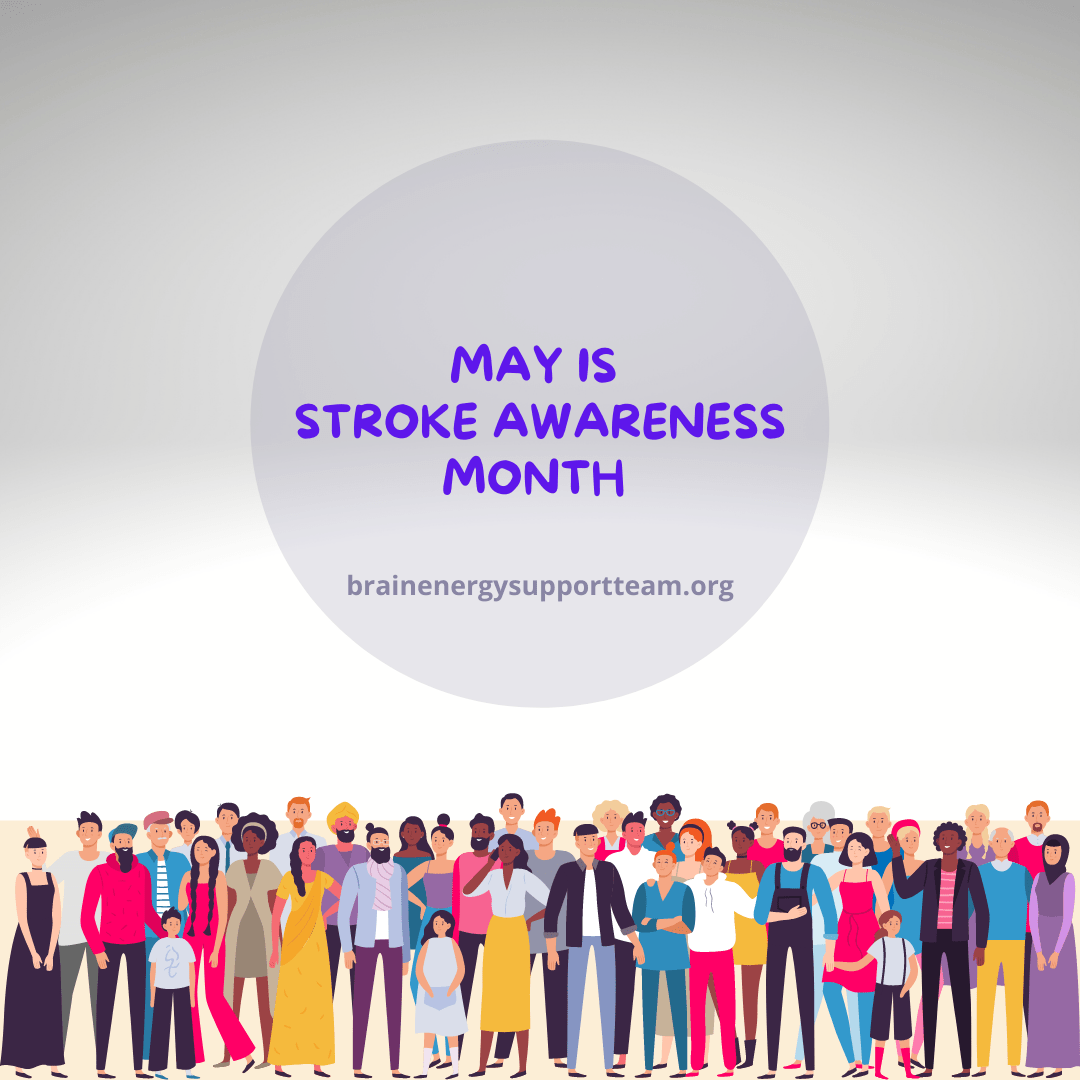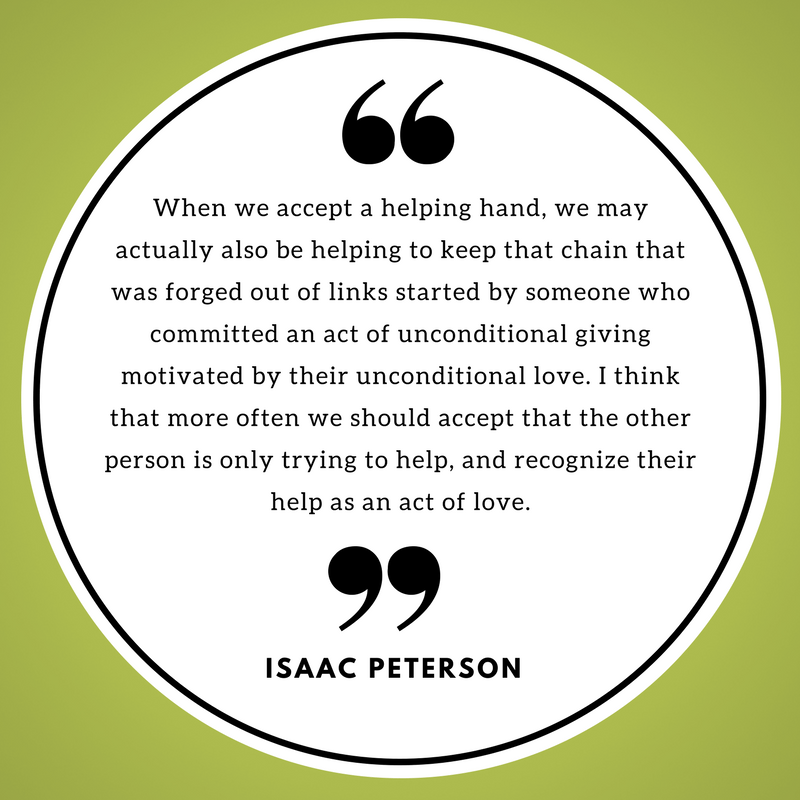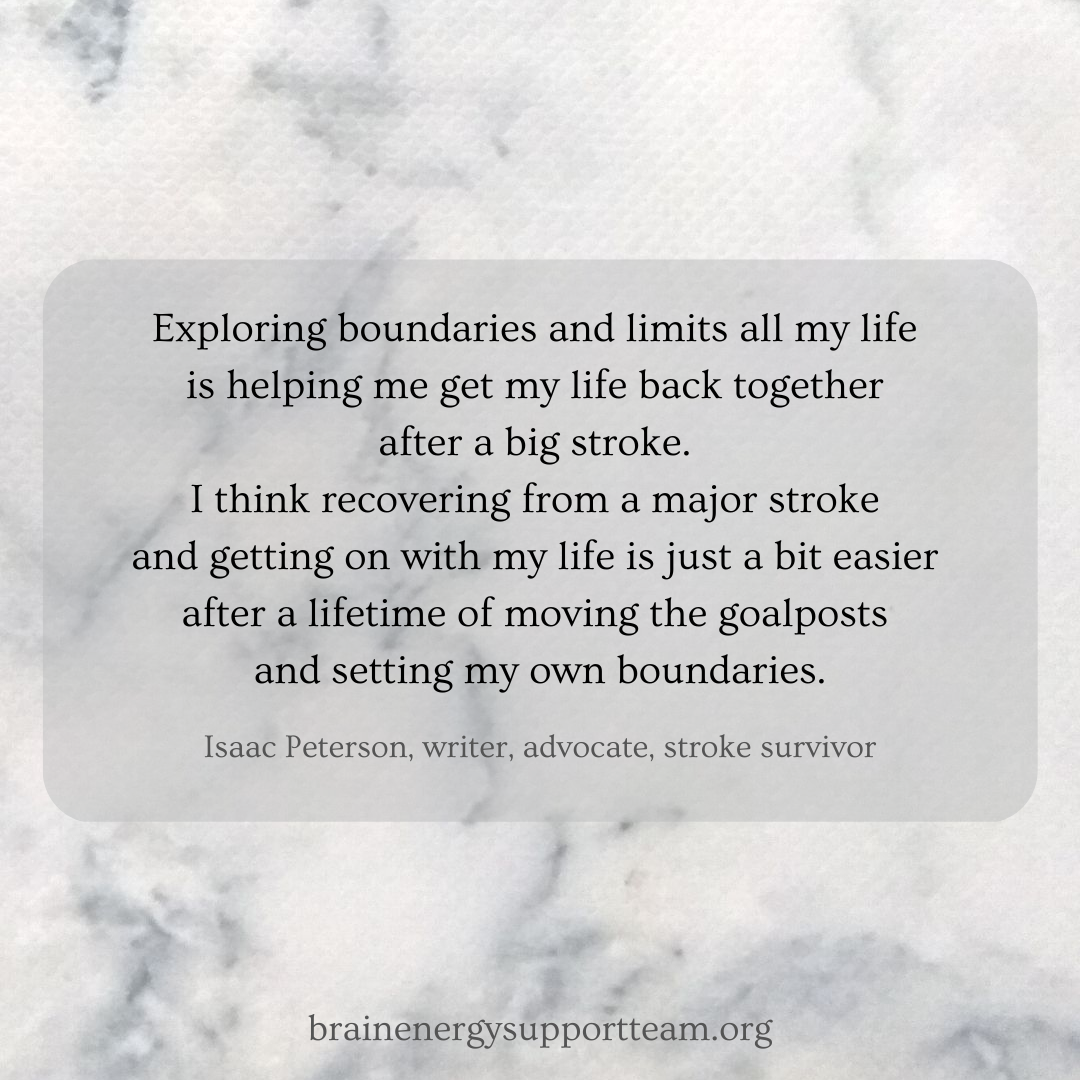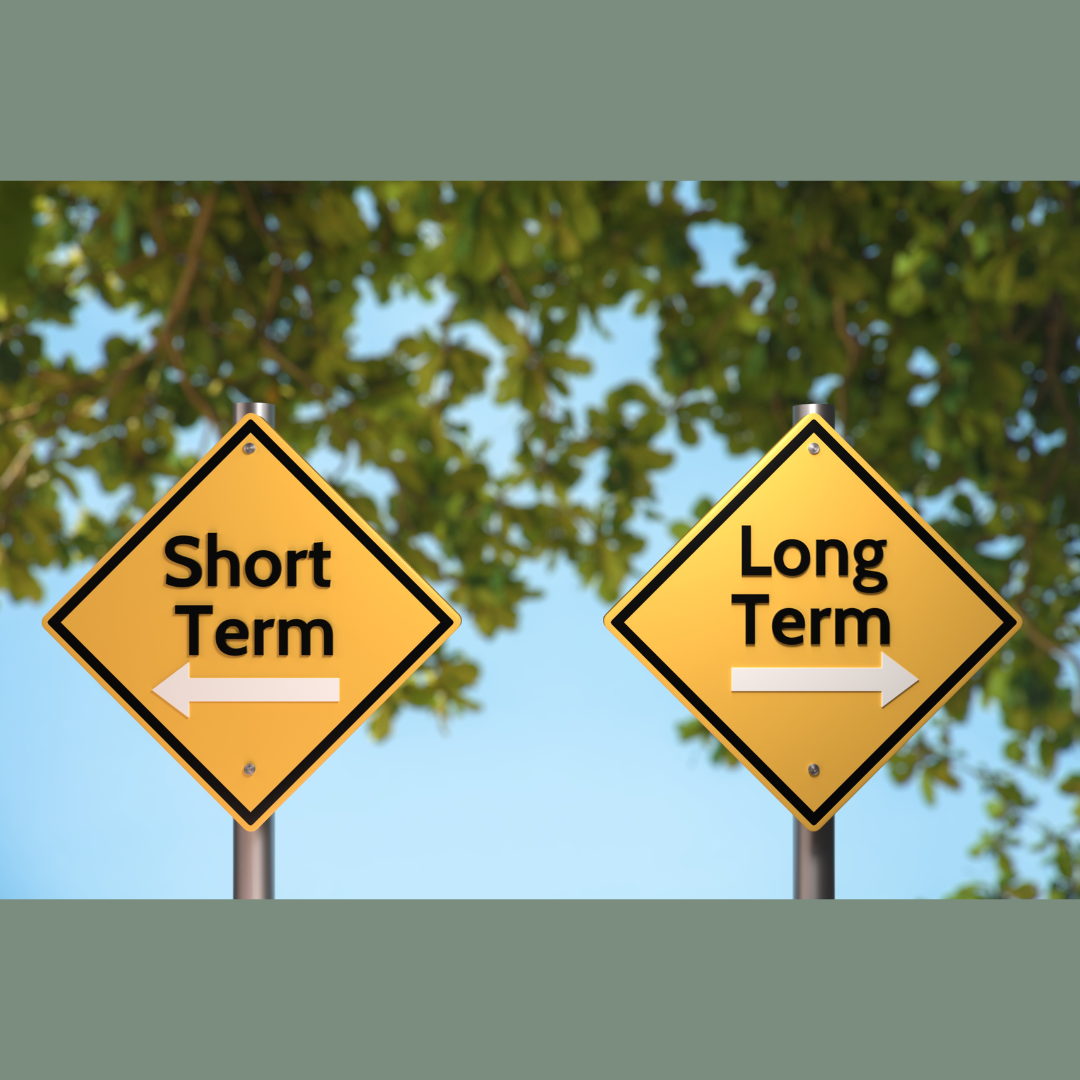When I was on my month-long hospital stay after a stroke, I began my self-help program while I was still laying flat on my back in bed.
I believe what I did there was the real start of my recovery.
My body didn’t work right and my brain was still scrambled, but I was still able to do some visualization and I believe that made all the difference.
I remember a few times someone told me something about things I could or couldn’t do. I always rejected that. I would say, sometimes out loud, No, it’s not going to be like that. I had no doubts I would have more power over my circumstances than they were telling me I would.
What I was doing was not accepting the negative framing of my recovery—I insisted on making my own reality. Since that time, I’m told over and over again how remarkable the rate of my recovery has been. I credit a few things for that, visualization and affirmations, being two big ones.
Here’s how visualization and affirmations work, in a nutshell.
Visualization is just that; forming a clear picture in your mind of whichever positive result you want in your life and believing completely that you get that result. Visualizing doesn’t necessarily mean having a crystal clear image: it can be enough just to be able to feel it, the more strongly the better.
After that, you energize that image through repetition and having no doubts you can attain it.
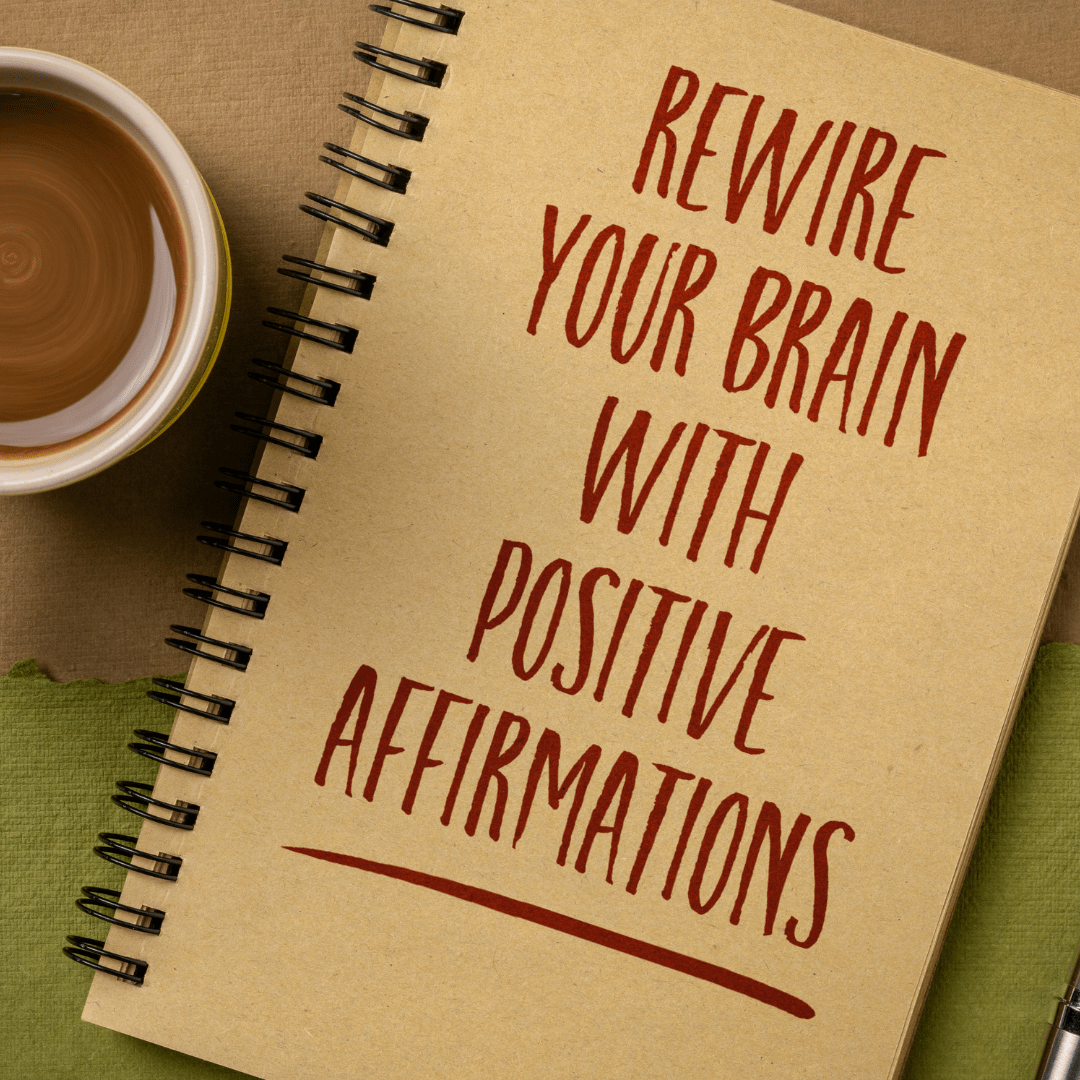 Here’s how it works.
Here’s how it works.
First, get into a relaxed state, sitting, lying down, whatever you do to relax. Relaxing is key: it helps your mind to dig deeper into yourself and concentrate.
When you are comfortable, visualize the change you want to make, and use the most positive wording you can. Figure out what it is you want to see in your life and burn a positive image of it in your mind’s eye. To get the best results, don’t use negative wording. Don’t use words like can’t or won’t; those words will get in the way of getting you where you want to go.
Avoid telling yourself things like, I want to be…. Say to yourself instead, I already am (what I want to be). I used that approach. I visualized myself in completely good health as if I’d never had a stroke, and doing the things I did before. It didn’t make me perfectly fine right away; those things take time and I still have a ways to go, but I am far ahead of schedule in my recovery as my brain works to restore my mind and body.
Here’s another example. If your goal is losing weight, you want to avoid phrasing things like, I won’t overeat. It’s pretty hard to visualize not overeating without visualizing overeating in some way and defeating the purpose. Instead, try telling yourself things like, I eat a balanced diet every day. I eat sensible portions of healthy food for every meal and I exercise every day. I’m slim and trim and I feel great. Visualize people telling you how great you look. See yourself as already being what you want to become and have no doubts you will get there. Doubt short circuits your efforts.
Our minds (or brains) are there to help us achieve what we visualize. What we tell ourselves will last a lifetime until that message is replaced by a better (or worse) one.
We see examples of this at work all the time. Examples: A child who is told he/she is no good will visualize being no good and grow up believing and behaving that way.
That’s kind of how these things work. It comes across like a New Age-y slogan: Think it and be it. But it’s not so much about positive thinking, as it is about positive-being.
I find it works best to visualize your goal as something you already have. Have absolute confidence it will come to be. That’s what I was doing while I was in the hospital and it has certainly helped my recovery..
I suggest using varying points of view in your affirmation. Here’s an example, using myself as the object:
- First person point of view: I, Isaac, am an excellent writer.
- Second person point of view: Isaac,you are an excellent writer.
- Third person point of view: Boy, that Isaac sure is an excellent writer.
Here’s more. Using the example above as a writer, sometimes to make my work more individualized, I visualize part of myself flowing through my fingers, to my keyboard, and into my words. in an effort to give my writing a more personal feel and flow.
I won’t become a better writer overnight, but I’m confident I will get there gradually and eventually. Meanwhile, my mind will set up the conditions that will allow me to be a better and better writer.
It could be directing me, behind the scenes, to do things like spend more time developing a concept before I write a single word, figuring out where I want a written piece to go and what the message is, cleaning up typos, tightening my grammar and syntax,and more. It might even lead me to change the way I think about writing, or to eliminate mental blocks that keep me from being as good at my craft as I am able. It may lead me to not try to force my work, but to allow it to happen.
Visualize your goal every day. That helps fix the goal in your mind’s eye and gives your mind (or brain) the focus you need to make it happen. Burn the image of what you want firmly in your mind and your mind will work to lead you to the steps you need to get there. I believe this gets to the heart of why so many New Year’s resolutions don’t work: they lack the necessary degree of commitment.
Visualizing change will work to effect change in yourself, but not to directly affect someone else. It can help you behave in a way that might influence someone else, though.
Let’s say there is someone with whom you don’t get along at the office, for example. You might visualize the two of you sitting at a table, having a pleasant chat. If it’s what you are telling your brain, you may find yourself behaving in ways that will make that person want to talk to you. In other words, you can’t change someone else’s behavior, but you can change your own to fit pretty much any situation.
As for affirmations, I think it might be helpful to write your positive affirmations down every day for a few days, to keep them in the front of your mind and in your consciousness, until it sinks in and becomes part of your being. This will reinforce your real commitment to that goal.
This all may sound like magic, and it kind of is magic, but not in a fictional, storybook kind of way. It’s having more power over yourself and your circumstances.
 | Isaac Peterson grew up on an Air Force base near Cheyenne, Wyoming. After graduating from the University of Wyoming, he embarked on a career as an award-winning investigative journalist and as a semi-professional musician in the Twin Cities, the place he called home on and off for 35 years. He doesn’t mind it at all if someone offers to pick up his restaurant tab and, also, welcomes reader comments. Email him at isaac3rd@gmail.com. Read more articles by Isaac here; https://www.brainenergysupportteam.org/archives/tag/isaac-peterson |
|---|

